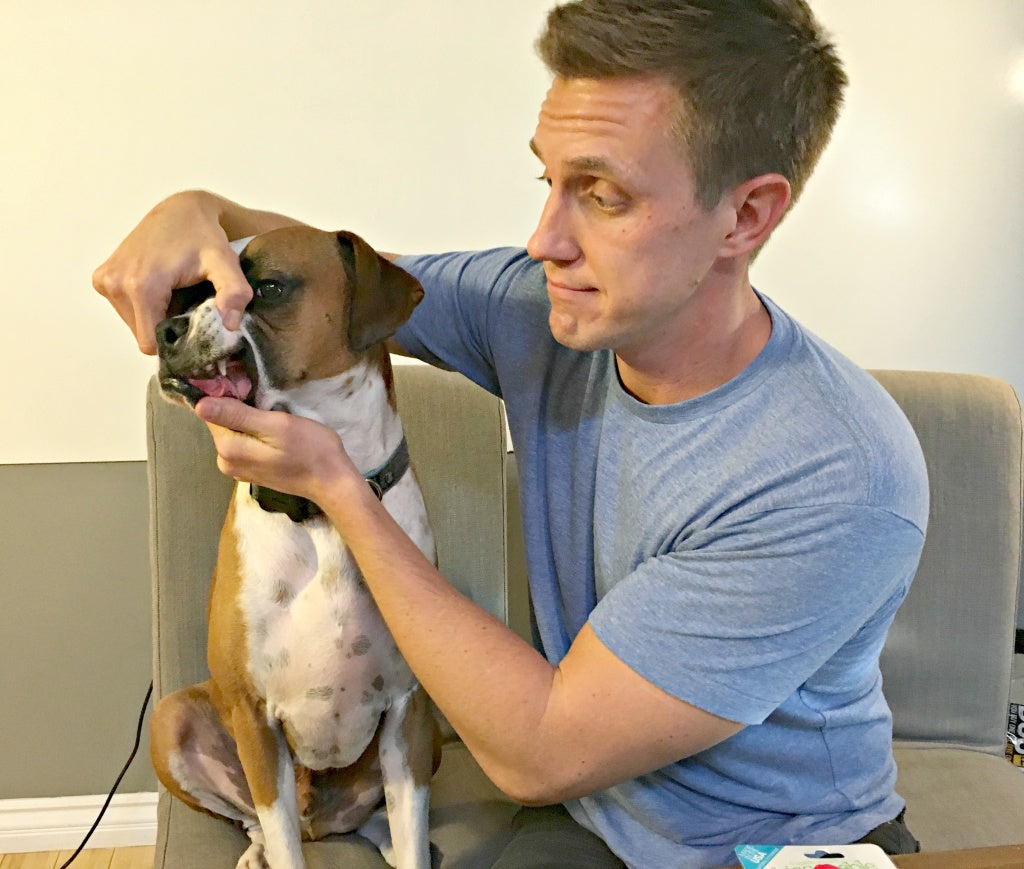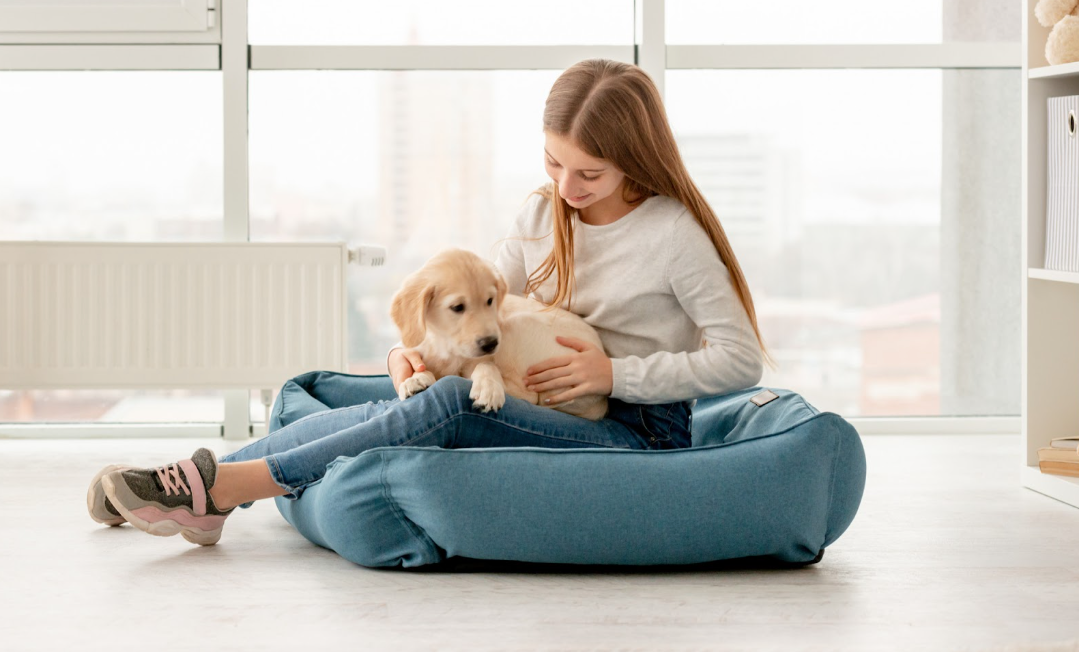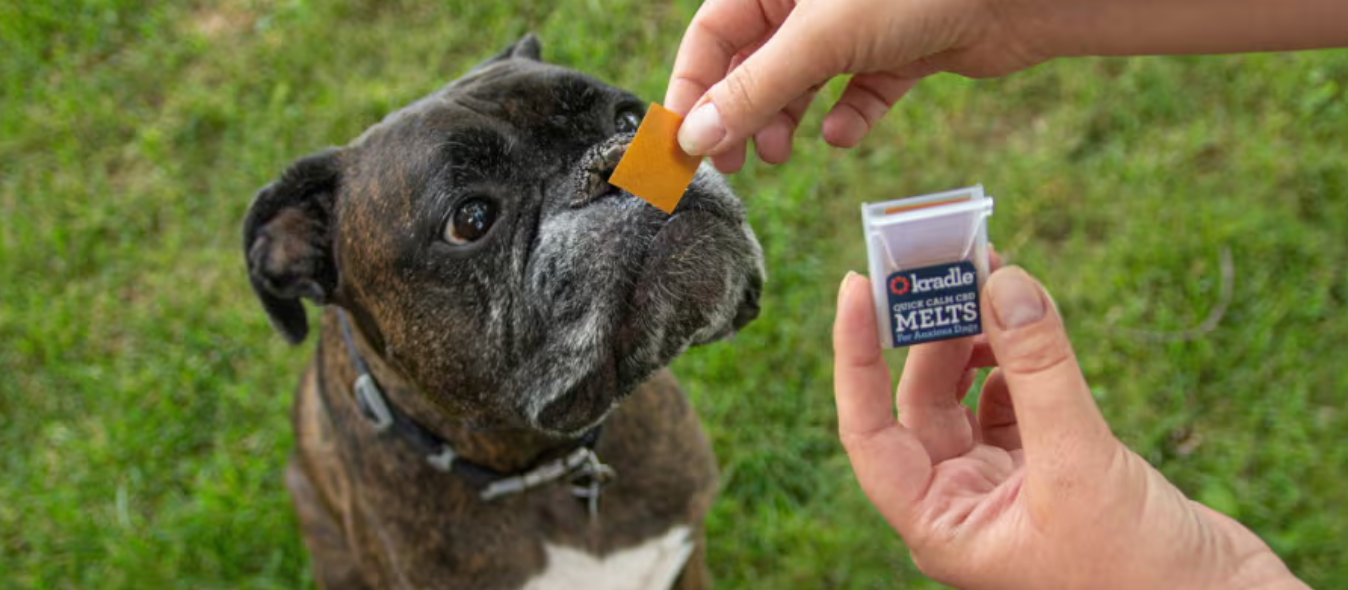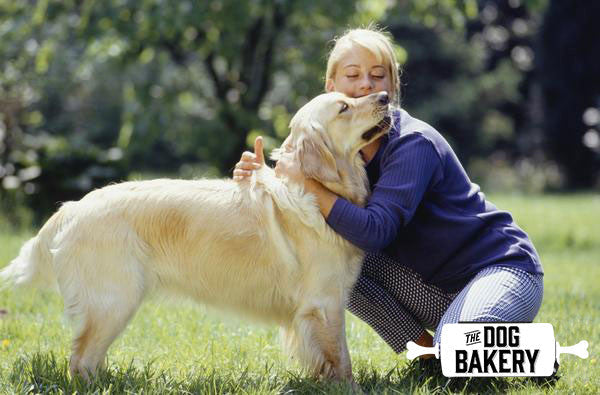
Have you heard? February is national pet dental month - and with good reason! Taking care of your dog's teeth is one of the keys to a long and healthy life. Beyond the obvious better breath factor, dental disease can actually lead to problems with your pet’s organs, such as the heart. Caring for your pet’s teeth can prevent other health problems as well, saving you tons of money over the long term! While it’s an easy habit to skip, it’s an important practice to make part of your regular health schedule for your pup. With that in mind, we thought it might be helpful to round up five reasons you need to brush your dog's teeth and some best tips on how to do it efficiently and without too much stress. Our hope is that if you’re not already regularly brushing, you’ll find an easy way to add it into your pup’s routine and keep them as healthy as possible.
- Retained baby teeth can cause problems in pets, just like they can in us. Did you know that full grown dogs have 42 teeth? Before their adult teeth grow in, their baby teeth have to fall out. Sometimes, not all of the baby teeth want to come out. This can lead to problems like gum irritation and tartar buildup. Good oral care doesn't start and stop with tooth brushing. It should include regular dental exams, including X-rays and a professional cleaning under general anesthesia. "The goal is to maintain oral health, function of the teeth, and a pain-free state," says Colleen O'Morrow, DVM, a veterinary dentist in Canada.
- Think about it: you need regular dental care and you brush your teeth everyday – why wouldn’t your pets? Teeth wear out! Your pets are tough on their teeth. Learn the symptoms to keep your pet from experiencing the pain of severely worn teeth.
- 4 out of 5 dogs over the age of 3 years have some sort of periodontal disease. It can be caused by the buildup of plaque. When the gums become inflamed and recede from the teeth (a condition known as periodontal disease), dangerous bacteria from the mouth can gain access to the bloodstream. These bacteria can then travel to vital tissues such as the heart, brain, liver, kidneys and lungs; causing infection and organ dysfunction.
- Pets that don’t get dental care can lose their teeth and this can be terribly painful and cause serious health problems. Remember what it felt like the last time you had a toothache? Although most dogs are very good at hiding it, they feel all the same pain sensations that humans do – including dental pain. Brushing their teeth daily can help prevent periodontal disease, and minimise the possibility of infected, painful teeth.
- If you've got a puppy, now is the time to include brushing in his good-manners training. But have no fear, even pets in their teens can learn to love a good brushing -- if you take it slow. Brush gradually and gently. Start by putting a little toothpaste on their brush and let your dog lick it off. Then try touching the toothbrush to your dog’s teeth. After that, brush for a few seconds. Take a month or two to introduce her to this new habit. When your dog is ready for a real brushing, raise her lips to expose teeth and gums. Then brush from the gum line to the tip of the tooth. Avoid opening your pet's mouth, which can lead to panic and struggling. It’s also important to use toothpaste made specifically for dogs, as toothpastes for humans contain certain types of fluorides and detergents that are meant to be spit out after you brush. Your dog will swallow toothpaste, so buy a product meant for pets. Pet toothpaste can come in a host of flavors, including poultry, beef, seafood, malt, peanut, and vanilla-mint. You’ll also want to use a pet-specific toothbrush. The heads of brushes made for people are too wide for a pet's mouth, and even soft bristles are usually too hard. Talk to your veterinarian about the best toothbrush for your dog. Your vet may suggest a soft power brush or some vets suggest a finger brush that slips over your finger like a thimble. If you have more than one pet, get each pet its own brush to avoid spreading germs. Don’t forget to brush in back as well. For pets, dental problems are often most severe in the back, upper teeth. So it's most important to brush the outsides of the big teeth there.
Your pet will probably need a professional dental cleaning at some point in his life, no matter how often you brush. The costs of a regular cleaning with minimal treatments will be much less than a cleaning that involves multiple extractions and gum surgery. Once your dog has lost a number of teeth there may be restrictions on the types of food and treats he can eat. Brushing daily will aid in preventing tooth loss, so your baby can keep his pearly whites and enjoy all his favorite foods well into his golden years.
Here’s a good how-to guide:
- Do not begin brushing the teeth with toothpaste and a brush immediately! Gradually work your way up to using a brush.
- Once your pet lets you put your fingers in his mouth, you can try wrapping your finger with a piece of gauze and use it to massage the toothpaste across the teeth and gums.
- Then begin to use the toothbrush. Hold the brush at a 45-degree angle to the teeth, and brush gently in a circular motion; focusing on the gum line.
- Dogs benefit greatly from chewing every day on something that helps keep teeth clean.
- Make tooth brushing fun and rewarding. Before and after brushing, praise, pet and play with your dog.
Ideally you’d do this every day! Though a couple of times a week is better than not at all. Progress through these steps as slowly as possible; praising and rewarding your pet as he masters each one. It may even take a few weeks to train your dog to accept tooth-brushing, but the benefits will be worth the time you invest. Keeping your pet’s mouth healthy does not have to be difficult, and if done right, can be something that your pooch looks forward to each day!
Thanks for reading, dog fans! Be sure to chime in with your own brushing tips in the comments below!






